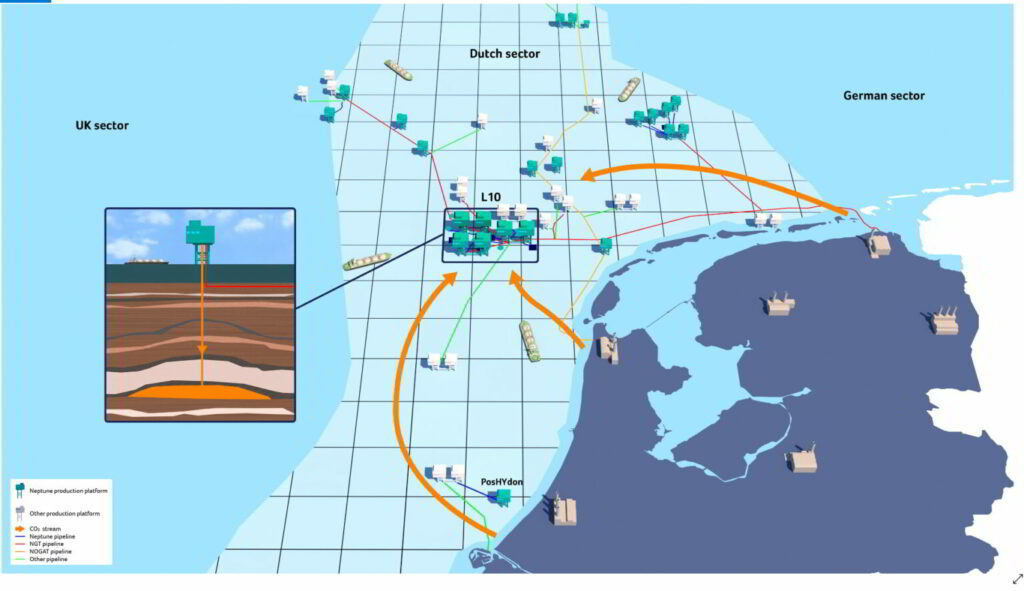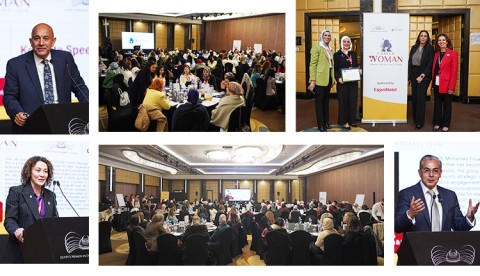Neptune Energy, along with its partners EBN, Tenaz Energy, and ExxonMobil Netherlands CCS, has progressed the L10CCS project from the Concept Select phase to the Define/FEED phase, which involves conducting technical and economic assessments to determine the feasibility of the project.
L10CCS is one of the large stores to be connected to the Aramis CO₂ transport and storage initiative in the Dutch part of the North Sea.
“We’re proud to be part of this consortium with our industry partners as L10CCS progresses into the FEED stage. The L10CCS project, with its application of promising CCS technology, has the potential to help achieve climate goals for both the Netherlands and for other countries in northwest Europe,” said Anthony Marino, President and CEO of Tenaz Energy.
The L10CCS project aims to store 5 million tons of CO₂ annually, which is equivalent to one-third of the total CO2 emissions from Dutch domestic vehicles in a year. All partners have signed a FEED Cooperation Agreement, and Neptune has awarded the Facilities FEED contract to Petrofac, which officially began last month.
“CCS is expected to account for nearly 15% of the cumulative reduction in CO2 emissions in the EU, according to the IEA Sustainable Development Scenario,” said Lex de Groot, Managing Director of Neptune Energy in the Netherlands, the operator of L10CCS.
“Without CO₂ storage, it would not be possible to meet the climate goals. To create a well-functioning CCS market, both emitters and storage providers need CO₂ transport. The region around L10 has a potential storage capacity of up to 120–150 MT, so it will play a crucial role in helping achieve climate goals and opening up possibilities for many emitters that need safe CO₂ storage in the North Sea at low costs,” de Groot added.
The storage license application for L10CCS was submitted in the second quarter of 2023. The project is currently awaiting approval from the Dutch Ministry of Economic Affairs and Climate Policy.
Notably, discussions with emitters, who are seeking a safe place to store their carbon in depleted gas fields under the North Sea, are ongoing. Necessary contractual arrangements will be made during this project phase, as Neptune stated in a press release.
“We’re pleased to cooperate with our L10CCS joint venture partners in this carbon storage project where we can re-use existing infrastructure and that is linked to the Aramis project,” said EBN’s Business Unit Director of CO2 Transport and Storage Systems, Berte Simons.
“With our subsurface knowledge and experience in storage, we’ll be able to contribute extensively to the development of this project. The offshore storage of CO2 is pivotal in meeting climate goals, and EBN is determined to contribute to a carbon-neutral energy system,” Simons noted.
The technical FEED scopes are expected to be completed by the second half of 2024, with the goal of reaching a final investment decision (FID) in 2025.
The timeline for L10CCS is in sync with the Aramis project timeline and is planned to be connected and operational on the first day of the CO2 transport system’s opening, which is now scheduled for 2028.








